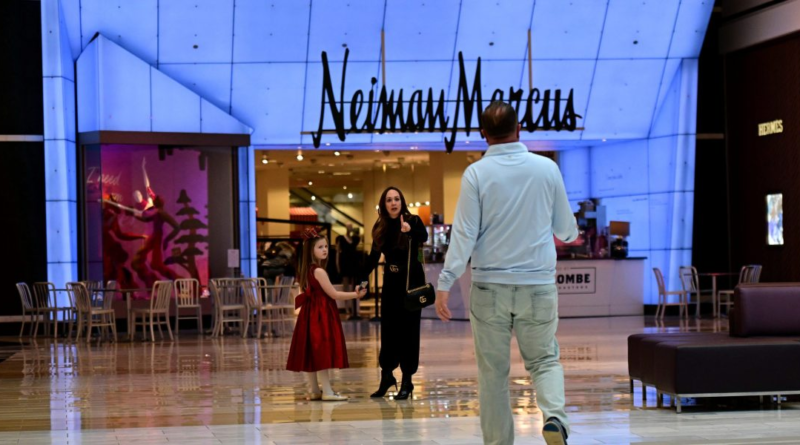Neiman Marcus doubled down on working from anywhere after dumping half a billion feet of office space. It has no plans to turn back.
Things weren’t looking good for luxury retailer Neiman Marcus in the early pandemic. Nobody was shopping—nobody had anywhere to go that necessitated a new outfit—and, like many other major retailers, the brand permanently shuttered numerous brick-and-mortar stores and filed for bankruptcy.
It emerged from that bankruptcy three months later as a private company, leaving its financials behind lock and key. But one thing the company is proud to share: It drastically downsized its corporate office space in the Dallas–Fort Worth area, with no plans to recoup it anytime soon.
Filing for bankruptcy “allowed us to make some tough choices about what we wanted to do with our corporate real estate,” Eric Severson, Neiman Marcus Group’s chief people and belonging officer, tells Fortune.
They landed on letting go of “a number of leases” and corporate spaces. Prior to the spring of 2020, Neiman Marcus Group (NMG) maintained half a billion square feet of corporate space in its Dallas headquarters; now it has about 100,000 square feet. When paring down that real estate footprint, it officially switched to a remote-first model, encouraging employees to work from anywhere with the open option to work from corporate hubs when it suits them.
Even as more companies roll back remote work in favor of return-to-office mandates, NMG is sticking by its move. The remaining office space has been retrofitted for 70% collaborative space and 30% individual space, which Severson has found best serves the needs of those who choose to come in more regularly.
“This work-from-anywhere policy and [real estate decisions] go together, and we decided to go deep on that policy,” Severson said. “It’s been really significant.”
The downsize approach
NMG is far from the only large company to vastly downsize during the pandemic and decide it’s better off with less of a real estate footprint. Silicon Valley stalwarts like Lyft, Meta, and Salesforce have all reduced their square footage over the past few years.
According to recent research from Robin, a Boston-based workplace strategy, three in four companies plan to cut their office square footage this year; less than half said the same in 2022. Since the pandemic, Robin found, 80% of companies have downsized their offices, and 82% are concerned they won’t be able to keep what they currently occupy, due either to a recession or simple underutilization as their people work from home. Office utilization rates are still largely under par at 31% across all U.S. business sectors, down from the 64% average in 2019, per CBRE’s 2023–2024 Global Workplace & Occupancy Insights report.
“It looks like an opposing trend but it’s really not,” Robin CEO Micah Remley said in an interview with the Boston Globe. Companies are envisioning “a flexible office space deeply focused on collaboration,” which can often be accomplished with far less space.
That’s certainly been the case with NMG’s remote-first, work-from-anywhere approach. The plan has become indispensable for the company, directly leading to 34% improvement in employee engagement and 31% improvement in time to hire for new roles.
Its results after implementing the plan were the opposite of the external trend at the time, Severson says: “It was the Great Resignation, with record-high attrition, while we had record-high retention.”
Simply put, Severson adds, NMG now treats its employee base with the same rigor as its customer base. “I think people have known for many years that flexibility has been a top attraction and retention driver,” he says, noting that he advocated for the same approach—to great success—while leading at Gap.
“Especially in corporate marketplaces, two factors create work-life stress and attrition: high cost of living and long commute times,” he says. “Those make it so stressful for workers to manage childcare, elder care, family responsibilities, and be available when they need to be at work. That’s why we did what we did, and it’s been a really positive decision.”
And given the benefits that flexible work has afforded NMG, Severson remains vexed as to why more companies haven’t followed their lead.
“The main reason we do what we do is because it works,” he says. “I definitely would say to anyone who’s doubtful: Run a test. The academic research is unequivocal on this subject. There’s no impact on productivity, and a big increase in happiness. Happiness can be measured by engagement, which improves with flexibility and remote options.”




